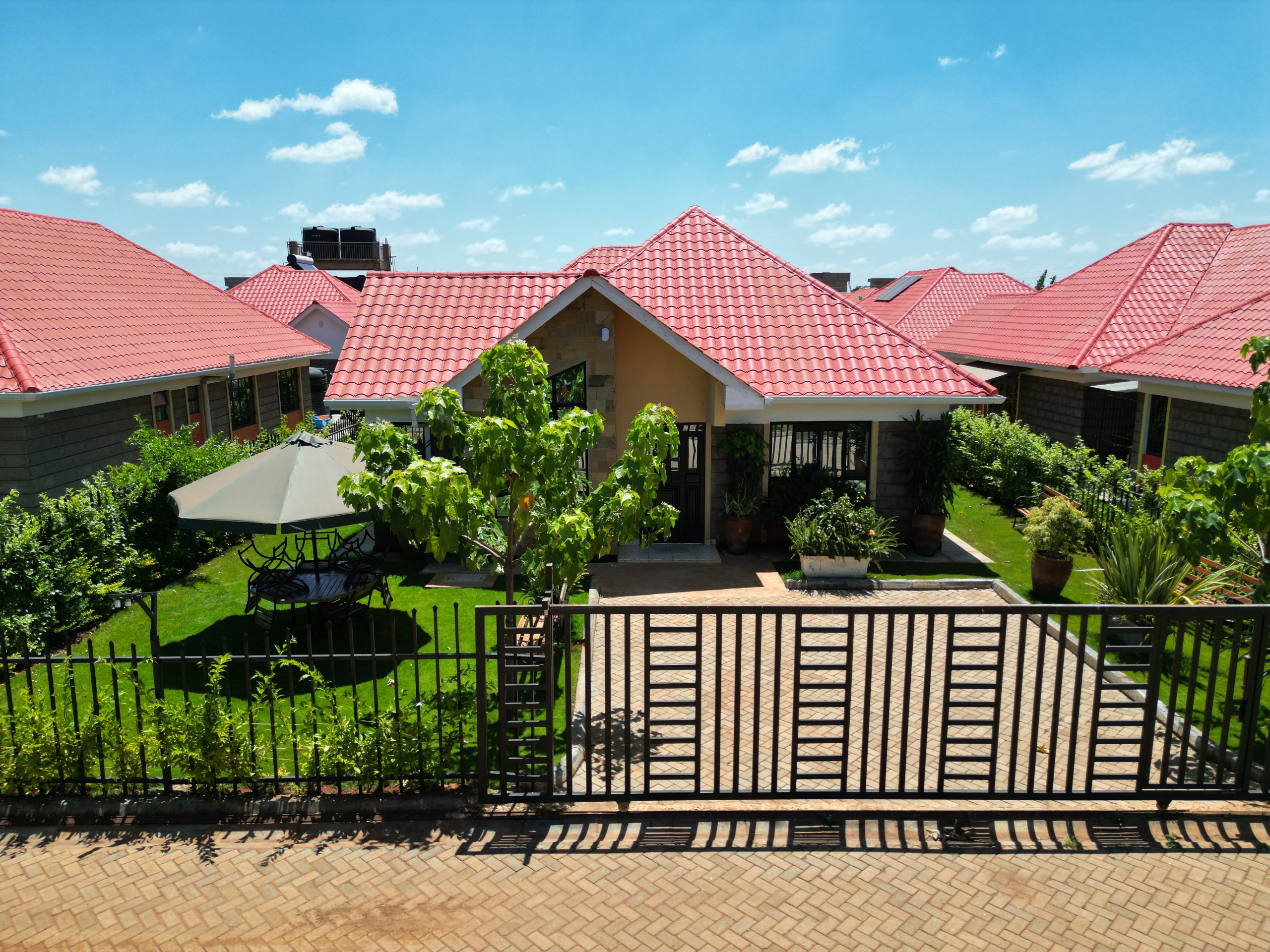In recent years, home insurance in Kenya has shifted from a little-known luxury to a growing necessity among property owners. Whether you are a first-time homeowner, a landlord, or living in your own residence, securing your investment against unforeseen risks such as fire, theft, or natural disasters is not just wise—it’s essential.
This comprehensive guide from Willstone Homes is tailored to help you understand the ins and outs of home insurance in Kenya, also referred to as the domestic package, and why it should be a priority for every property owner.
What Is Home Insurance in Kenya?
Home insurance in Kenya is a policy designed to protect a property owner’s physical structure and personal possessions against damage or loss. Offered by most Kenyan insurance providers, this type of coverage often includes optional liability protections and temporary accommodation costs in case your home becomes uninhabitable.
There are two primary components:
- Dwelling Insurance – Covers structural damage to your home.
- Contents Insurance – Covers loss or damage to personal items inside the home.
Read Also: The Future of Nairobi’s Informal Settlements
Key Components of Home Insurance Coverage
1. Dwelling Coverage
Dwelling insurance ensures that your home’s physical structure—including walls, roof, floors, garage, and attached porches—is protected from risks such as:
- Fire and explosion
- Burst pipes
- Vehicle impacts
- Theft and attempted burglary
- Vandalism
Insurance companies in Kenya usually base the payout on the cost of rebuilding, not on the property’s market value. The assessment includes construction materials, labor, and cleanup fees.
2. Contents Coverage
Your electronics, furniture, appliances, and valuables are covered under this section. Some insurance providers in Kenya allow you to add high-value items like artwork and jewelry at an additional cost.
To make claims easier, insurers recommend creating a detailed inventory, including receipts, photos, and serial numbers.
3. Personal Liability Coverage
Should someone get injured on your property or you accidentally damage another person’s property, personal liability insurance covers legal fees and compensation. This protection extends to family members living in your household but excludes auto-related and intentional harm cases.
4. Loss of Use Coverage
Also known as Additional Living Expenses (ALE), this coverage helps you afford temporary accommodation (e.g., hotel stays) and daily essentials if your home becomes uninhabitable due to a covered incident. Limits vary but typically range from 10–20% of the dwelling coverage amount.
5. Employer Liability
Under Kenya’s Work Injury Benefits Act, if you employ domestic workers or contractors, employer liability coverage ensures you’re protected against claims from work-related injuries or illnesses. This component is mandatory and can be bundled into your domestic package.
Read Also: REITs in Kenya: The Future of Wealth Building Through Real Estate Investment
What Home Insurance Does Not Cover
Understanding exclusions is crucial. Most home insurance policies in Kenya do not cover:
- Natural disasters like earthquakes and floods (unless added as a separate rider)
- Gradual wear and tear
- Termite or rodent damage
- Negligence, such as ignoring leaking pipes or poor home maintenance
Confirm all exclusions directly with your insurance provider to avoid misunderstandings during a claim.
Tips to Reduce Your Home Insurance Premium in Kenya
While home insurance in Kenya is more affordable than many people think, there are several smart ways to lower your annual premium:
- Increase Your Excess: Voluntarily paying a higher portion of claims reduces the cost of your premium.
- Bundle Insurance Policies: Combining home, auto, and health insurance with one provider can earn you significant discounts.
- Avoid Frequent Claims: A clean claims history can qualify you for a no-claims bonus.
- Loyalty Discounts: Some insurers offer reduced premiums for clients who stay with them over time.
- Clear Your Mortgage Early: Owning your home outright gives you negotiation power and may lower your premium.
- Keep Your Home Maintained: Homes in good condition, with added safety features like CCTV, alarms, or smoke detectors, attract lower premiums.
Read Also: How US Tariffs Are Reshaping Kenya’s Real Estate Market
How Insurers Calculate Your Premium
Your home insurance premium in Kenya is influenced by several factors, including:
- Cost to rebuild (not market value)
- Age and condition of the property
- Value of insured contents
- Your claims history
- Location and neighborhood risk
- Construction materials (e.g., brick vs. timber)
Premiums are tailored, and it’s important to be transparent with your insurer when changes—like home renovations—occur.
How to Get Home Insurance in Kenya
Here’s a step-by-step guide on obtaining home insurance in Kenya:
- Assess Your Coverage Needs – Determine the level of dwelling and contents protection you need.
- Research Providers – Look for reputable companies like Britam, Jubilee, CIC, or APA.
- Compare Quotes – Request quotes and compare premiums, limits, and exclusions.
- Understand Terms – Carefully read the fine print before signing.
- Submit Application – Provide accurate details and required documents.
- Make Payment – Choose a suitable payment plan (monthly, quarterly, or annual).
- Review Your Policy – Ensure all coverage is accurately documented.
- Update Regularly – Notify your insurer about any changes that may affect your risk profile.
Whether you work through a broker or buy directly from an insurance company, always confirm licensing with the Insurance Regulatory Authority (IRA) Kenya.
Read Also: How Real Estate Technology Solutions Are Transforming the Industry
Why Home Insurance Is a Must for Every Kenyan Homeowner
With the rising cost of living and increasing risk of property-related incidents, home insurance in Kenya is no longer a luxury—it’s a strategic investment in financial protection. For homeowners with mortgages, it’s often a lender requirement, while for landlords and tenants, it provides peace of mind against theft, fire, and liability.
At Willstone Homes, we don’t just help you find a house—we help you protect your home and peace of mind. Whether you’re moving into a new apartment or building your dream home in Nairobi, Kiambu, or Thika, ensure you get a home insurance plan tailored to your needs.
Read Also: Kenya Real Estate Market 2025: Navigating Growth Amidst Urbanization and Housing Challenges
Frequently Asked Questions (FAQ)
What does home insurance cover in Kenya?
It typically covers dwelling damage, contents loss, personal liability, temporary relocation costs, and employer liability.
Is home insurance the same as domestic package insurance?
Yes, in Kenya, home insurance and domestic package insurance are interchangeable terms.
Can I buy home insurance online?
Yes, most Kenyan insurance providers now offer digital platforms for quick and easy policy purchases—some in under 5 minutes.
Do I need home insurance if I rent?
Yes. While the building may be insured by your landlord, you can still insure your personal belongings.
Final Word: Secure Your Investment with Willstone Homes
Home insurance in Kenya offers you protection, peace of mind, and resilience. Whether you’re in Nairobi, Mombasa, or Eldoret, securing your home ensures that when the unexpected happens, you have a safety net in place.
Visit OUR HOME PAGE to explore real estate listings and property advice, or to connect with a partner insurer who can guide you toward the best home insurance package in Kenya.





